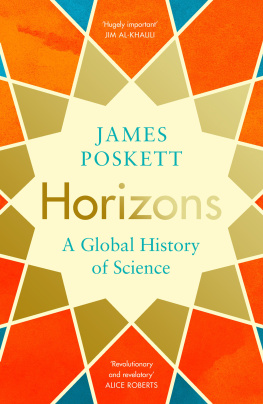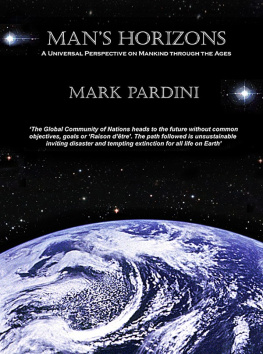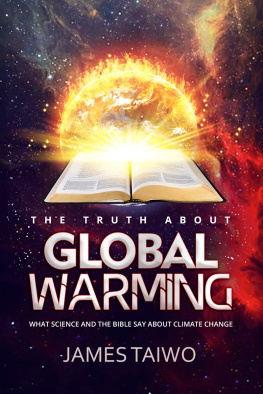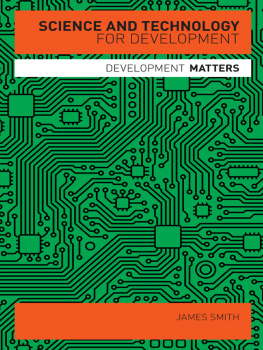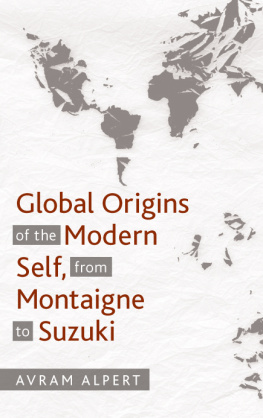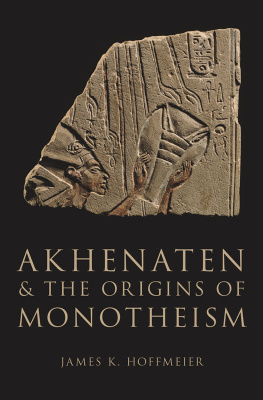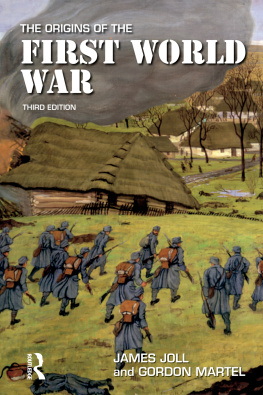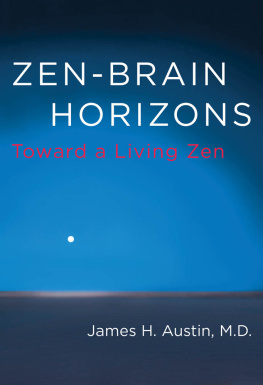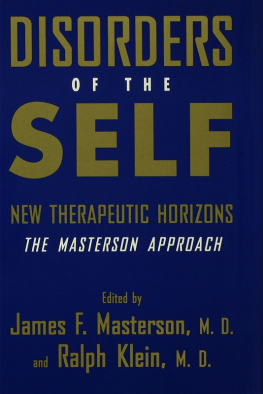James Poskett - Horizons—The Global Origins of Modern Science
Here you can read online James Poskett - Horizons—The Global Origins of Modern Science full text of the book (entire story) in english for free. Download pdf and epub, get meaning, cover and reviews about this ebook. year: 2022, publisher: HarperCollins, genre: History. Description of the work, (preface) as well as reviews are available. Best literature library LitArk.com created for fans of good reading and offers a wide selection of genres:
Romance novel
Science fiction
Adventure
Detective
Science
History
Home and family
Prose
Art
Politics
Computer
Non-fiction
Religion
Business
Children
Humor
Choose a favorite category and find really read worthwhile books. Enjoy immersion in the world of imagination, feel the emotions of the characters or learn something new for yourself, make an fascinating discovery.
- Book:Horizons—The Global Origins of Modern Science
- Author:
- Publisher:HarperCollins
- Genre:
- Year:2022
- Rating:5 / 5
- Favourites:Add to favourites
- Your mark:
- 100
- 1
- 2
- 3
- 4
- 5
Horizons—The Global Origins of Modern Science: summary, description and annotation
We offer to read an annotation, description, summary or preface (depends on what the author of the book "Horizons—The Global Origins of Modern Science" wrote himself). If you haven't found the necessary information about the book — write in the comments, we will try to find it.
Horizons—The Global Origins of Modern Science — read online for free the complete book (whole text) full work
Below is the text of the book, divided by pages. System saving the place of the last page read, allows you to conveniently read the book "Horizons—The Global Origins of Modern Science" online for free, without having to search again every time where you left off. Put a bookmark, and you can go to the page where you finished reading at any time.
Font size:
Interval:
Bookmark:
For Alice and Nancy
Section 1
Section 2
This book covers a great range of languages, regions, and periods of history. Broadly, I have followed the rule of using the spelling and ordering conventions common to the particular place and period I am writing about in each chapter. In a few instances, I have made an exception in order to improve readability. Diacritical marks have been omitted from the transliteration of non-Latin scripts. All translations, unless otherwise indicated, are taken from the sources listed in the notes.
Where did modern science come from? Until very recently, most historians would tell you the following story. Sometime between 1500 and 1700, modern science was invented in Europe. This is a history which usually begins with the Polish astronomer Nicolaus Copernicus. In On the Revolutions of the Heavenly Spheres (1543), Copernicus argued that the Earth goes around the Sun. This was a radical idea. Since the time of the ancient Greeks, astronomers had believed that the Earth was at the centre of the universe. For the first time, scientific thinkers in sixteenth-century Europe started to challenge ancient wisdom. Copernicus was followed by other pioneers of what is often called the scientific revolution the Italian astronomer Galileo Galilei, who first observed the moons of Jupiter in 1609, and the English mathematician Isaac Newton, who set out the laws of motion in 1687. Most historians would then tell you that this pattern continued for the next 400 years. The history of modern science, as traditionally told, is a story focused almost exclusively on men like Charles Darwin, the nineteenth-century British naturalist who advanced the theory of evolution by natural selection, and Albert Einstein, the twentieth-century German physicist who proposed the theory of special relativity. From evolutionary thought in the nineteenth century to cosmic physics in the twentieth century, modern science we are told is a product of Europe alone.
This story is a myth. In this book, I want to tell a very different story about the origins of modern science. Science was not a product of a unique European culture. Rather, modern science has always depended upon bringing together people and ideas from different cultures around the world. Copernicus is a good example of this. He was writing at a time when Europe was forging new connections with Asia, with caravans travelling along the Silk Road as well as galleons sailing across the Indian Ocean. In his scientific work, Copernicus relied upon mathematical techniques borrowed from Arabic and Persian texts, many of which had only recently been imported into Europe. Similar kinds of scientific exchange were taking place throughout Asia and Africa. This was the same period in which Ottoman astronomers journeyed across the Mediterranean, combining their knowledge of Islamic science with new ideas borrowed from Christian and Jewish thinkers. In West Africa, at the courts of Timbuktu and Kano, mathematicians studied Arabic manuscripts imported from across the Sahara. To the east, astronomers in Beijing read Chinese classics alongside Latin scientific texts. And in India, a wealthy maharaja employed Hindu, Muslim, and Christian mathematicians to compile some of the most accurate astronomical tables ever made.
All this suggests a very different way of understanding the history of modern science. In this book, I argue that we need to think of the history of modern science in terms of key moments in global history. We begin with the colonization of the Americas in the fifteenth century and move all the way through to the present. Along the way we explore major developments in the history of science, from the new astronomy of the sixteenth century through to genetics in the twenty-first. In each case, I show how the development of modern science depended upon global cultural exchange. It is worth emphasizing, however, that this is not simply a story of the triumph of globalization. After all, cultural exchange came in lots of different forms, many of which were deeply exploitative. For much of the early modern period, science was shaped by the growth of slavery and empire. In the nineteenth century, science was transformed by the development of industrial capitalism. Whilst in the twentieth century, the history of science is best explained in terms of the Cold War and decolonization. Yet despite these deep imbalances of power, people from across the world made significant contributions to the development of modern science. Whatever period we look at, the history of science cannot be told as a story which focuses solely on Europe.
The need for such a history has never been so great. The balance of the scientific world is shifting. China has already overtaken the United States in terms of science funding, and for the last few years researchers based in China have produced more scientific articles than anywhere else in the world. The United Arab Emirates launched an unmanned mission to Mars in the summer of 2020, whilst computer scientists in Kenya and Ghana play an increasingly important role in the development of artificial intelligence. At the same time, European scientists face the fallout from Brexit, whilst Russian and American security services continue to wage cyberwarfare.
Science itself is plagued by controversy. In November 2018, the Chinese biologist He Jiankui shocked the world by announcing that he had successfully edited the genes of two human babies. Many scientists believed that such a procedure was too risky to justify trying on human subjects. However, as the world quickly learned, it is very hard to enforce an international code of scientific ethics. Officially, the Chinese government distanced itself from Hes research, serving him with a three-year prison sentence. But in 2021, researchers in Russia are already threatening to replicate his controversial experiment. Alongside issues surrounding ethics, science today, as in the past, suffers from deep inequalities. Scientists from minority ethnic backgrounds are underrepresented at the top of the profession, Jewish scientists and students continue to suffer antisemitic abuse, whilst researchers working outside of Europe and the United States are often denied visas for travel to international conferences. If we are to tackle such problems, we need a new history of science, one that better reflects the world in which we live.
Scientists today are quick to acknowledge the international nature of their work. But they tend to think of this as a relatively recent phenomenon, a product of the big science of the twentieth century, rather than something with a history stretching back more than 500 years. When contributions to science from outside of Europe are acknowledged, they are typically relegated to the distant past, not part of the story of the scientific revolution and the rise of modern science. We hear a lot about the golden age of medieval Islamic science, the period around the ninth and tenth centuries, when scientific thinkers in Baghdad first developed algebra and many other new mathematical techniques. There is a similar emphasis on the scientific accomplishments of ancient China, such as the invention of the compass and gunpowder, both well over 1,000 years ago. But these stories only serve to reinforce the narrative that places like China and the Middle East have little to do with the history of modern science. Indeed, we often forget that the notion of a golden age had originally been invented during the nineteenth century in order to justify the expansion of European empires. British and French imperialists promoted the false idea that the civilizations of Asia and the Middle East had been in decline since the medieval period, and so needed to modernize.
Font size:
Interval:
Bookmark:
Similar books «Horizons—The Global Origins of Modern Science»
Look at similar books to Horizons—The Global Origins of Modern Science. We have selected literature similar in name and meaning in the hope of providing readers with more options to find new, interesting, not yet read works.
Discussion, reviews of the book Horizons—The Global Origins of Modern Science and just readers' own opinions. Leave your comments, write what you think about the work, its meaning or the main characters. Specify what exactly you liked and what you didn't like, and why you think so.


